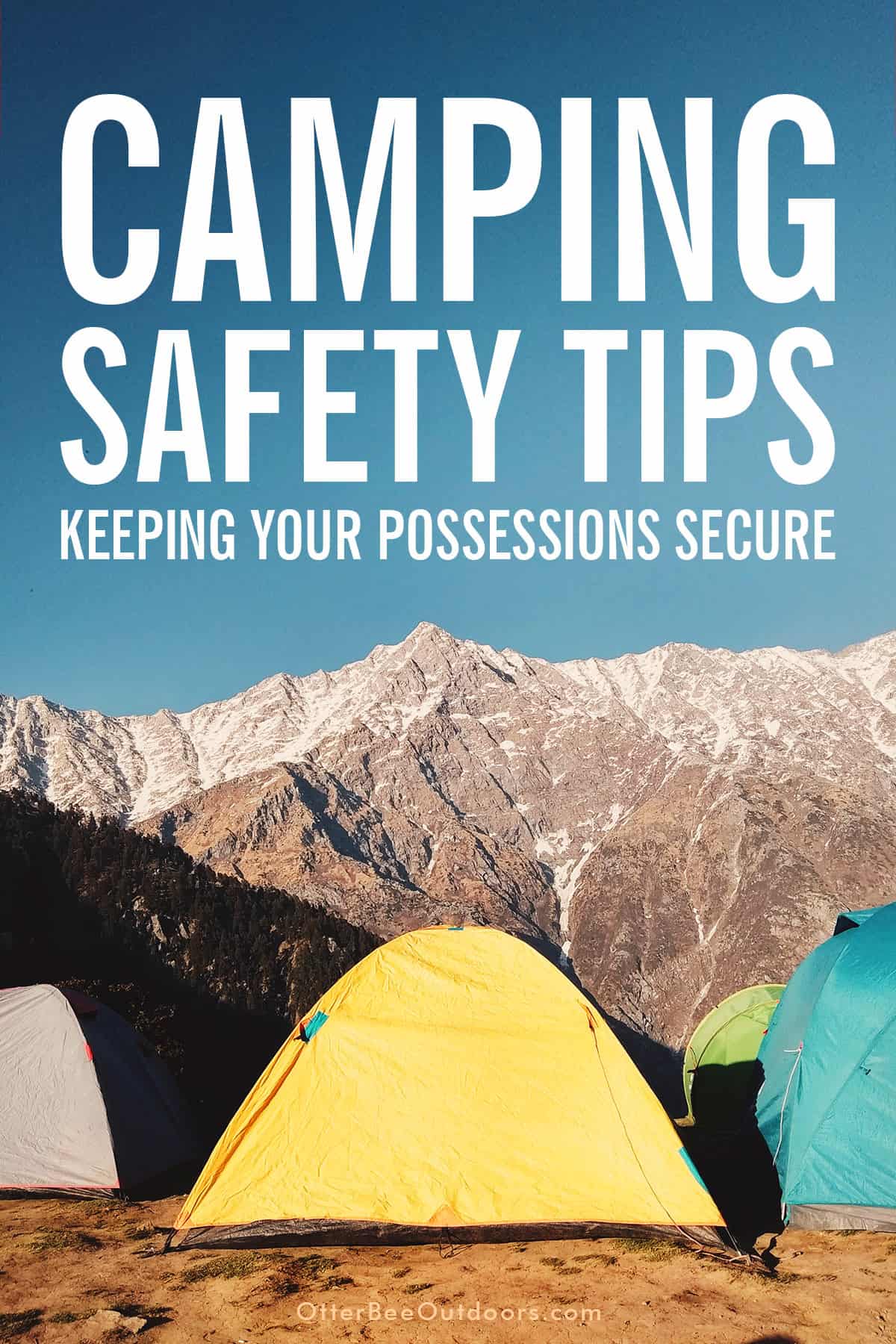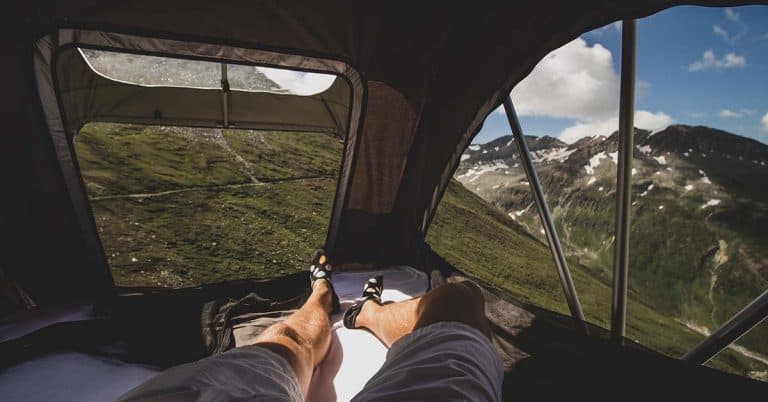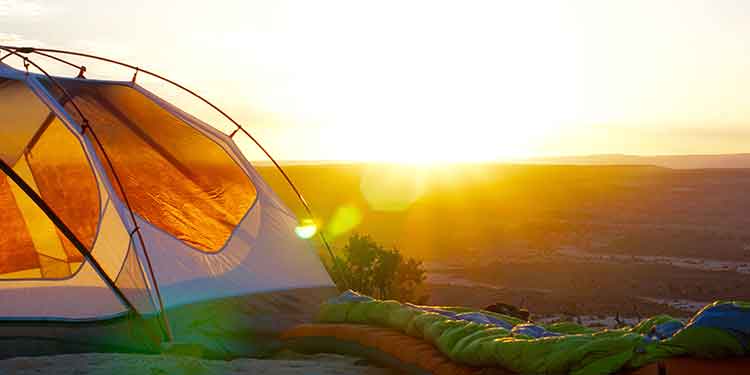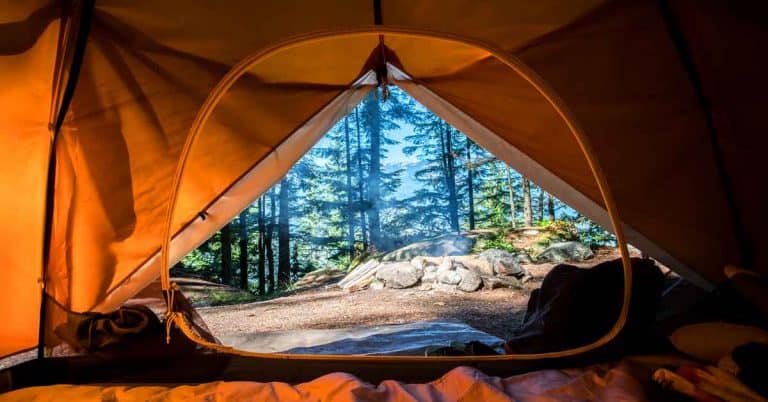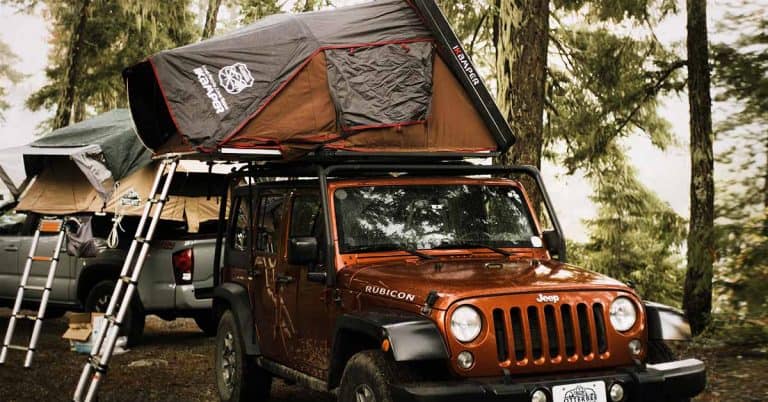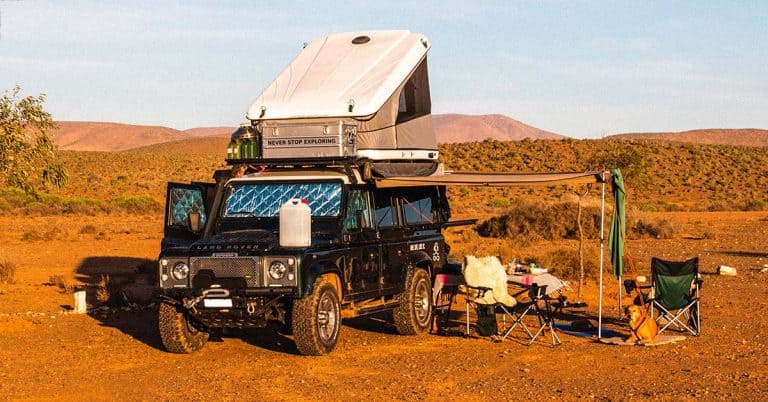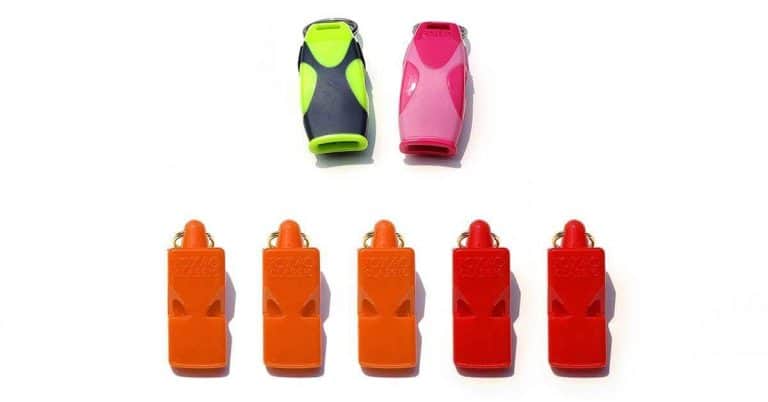Disclosure: I am compensated for purchases made through some links on this site. Click for details.
Theft and vandalism occasionally occur at campsites when vehicles, gear, and valuables are left unattended. The risks increase when camping is combined with hiking, kayaking, canoeing, fishing, spelunking, climbing, or other where campsites are left vacant for extended periods.
Thankfully there are simple ways to protect ourselves against theft at campsites.
Campsite theft and vandalism can be reduced by choosing your campsite wisely, knowing your surroundings, and removing temptation by storing belongings out of plain sight.
With these three in mind, let’s look at some specific ways to improve camping safety by lowering theft and vandalism risk at your campsite.
Camping Safety Tips for Keeping Your Possessions Secure
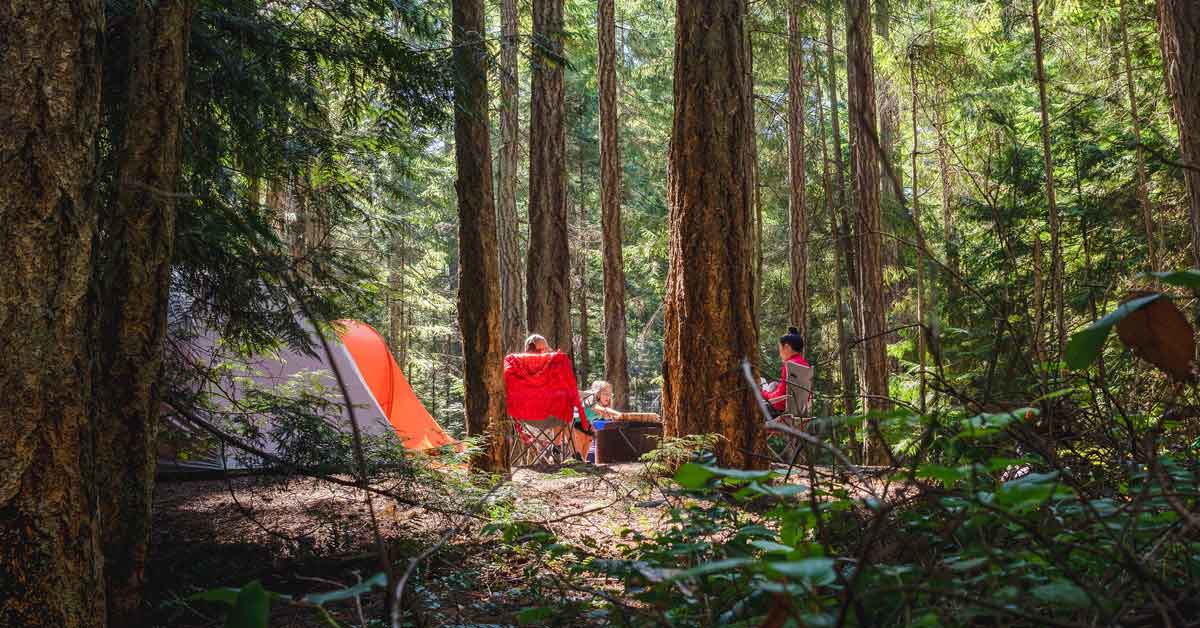
Use Common Sense
Common sense will benefit you in all areas of life. Rely on it when camping. It will go a long way toward protecting you and your belongings.
Many of the points we’ll cover involve common sense.
Choose Your Campsite Wisely
Choose the best campground and then the best available campsite within those grounds.
Choosing the Right Campground
- Research the campground on social media. People often post reviews that will help you make a wise choice in campground.
- When possible, pick a campground that has some level of security: check-in with security gate, safety patrols, and security cameras.
- Ask the campground staff or park officials about recent problems at the campground and surrounding parks. I’ve occasionally been advised by rangers to avoid certain campsites or advised of far better campsites.
Find a Happy Balance in Campsite Visibility
Choose a campsite away from busy paths and roads so those passing by can’t easily see your belongings but your camp should be visible enough to create apprehension in a potential thief. Also, trespassers are more likely to be interrupted at a more visible campsite.
Get To Know Neighboring Campers
Neighbors at your campsite can give you great insight and help in securing your safety and the safety of your belongings.
Meet Your Campsite Neighbors
As soon as you can, introduce yourself to your neighbors and get a sense of who they are and what they’re about. A brief conversation can often tell you a lot about someone.
There are times when it’s wise to move on after meeting your camping neighbors.
Not that I have knowingly camped beside thieves, but I have had a campsite next to a large group of partiers. Had I met them before setting up camp I would have moved. I sure wanted to move by 1 am.
Get the Lowdown
Most of the time, you’ll find wonderful camping neighbors. If they’ve been at the campgrounds longer than you, they can give you the lowdown on what’s been happening and if there’s anyone to look out for.
Get Helpful Eye
Campsites are often within eyeshot. Ask trustworthy neighbors if they’d like you to keep an eye out for suspicious activity at their site when they’re gone and ask them if they’d do the same for you.
Leave Valuable Personal Property (VPP) at Home
Valuable personal property (VPP) is rarely necessary for a successful camping experience. These are items like jewelry, electronic devices, musical instruments, guns, silverware, etc.
Lures for thieves!
If you don’t need an item for your camping adventure, leave it at home. What you don’t bring can’t be stolen from camp.
Married or engaged and still want to wear rings? My wife and I wear silicone rings instead of our engagement and wedding and rings.
Take Inventory
It’s always good to have an inventory checklist when you go camping, hiking, canoeing, kayaking, or other. You need to make sure you have everything you need, especially camping safety items.
Inventory checklists ensure that you don’t bring unnecessary camping gear and serve as a reminder later on. It’s easy to forget if you’ve brought an item or not. Without a checklist, it’s hard to know if you left something at home or if it might have been stolen.
You can also use your camping checklist to make sure items are locked up when you aren’t at camp and to ensure nothing is left behind when you break camp and leave.
Keep Your Gear Close and Protected
To avoid theft, all items at your camp should be centrally located in the center of your campsite so you can keep an eye on things.
It’s far easier for an intruder to slip in unnoticed and steal items when they’re spread around the campsite and don’t leave items unattended at campground common areas.
Hide And Lock Gear in Your Vehicle
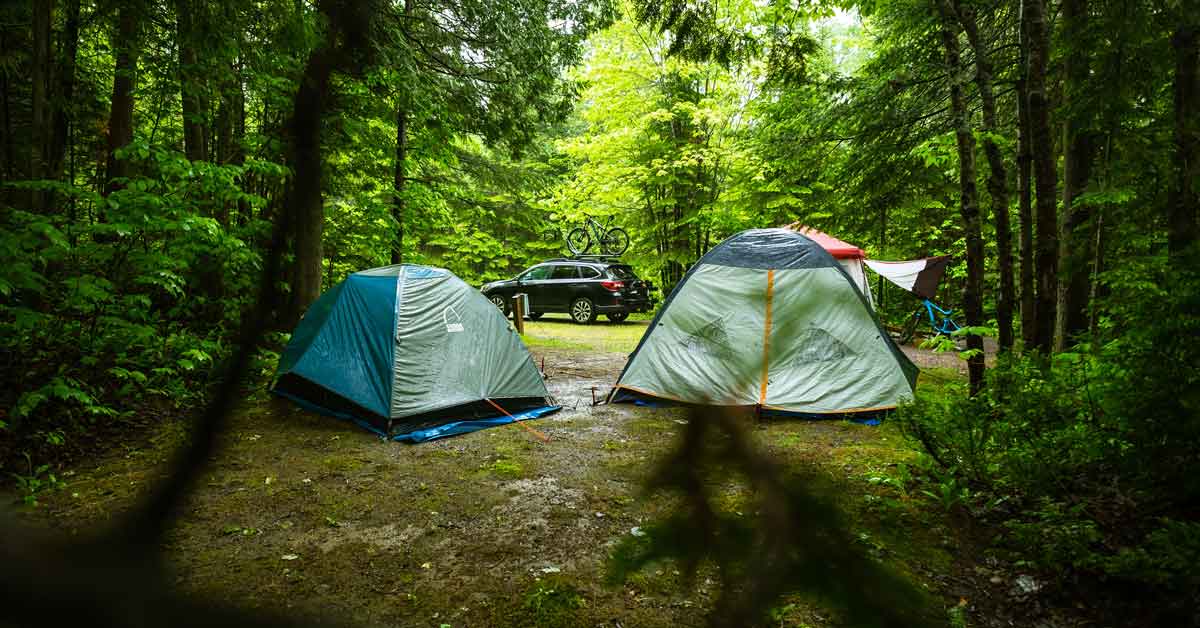
Your campsite is all set up like you want it but your entire camping party is leaving to have other outdoor fun. Leaving your belongings behind opens you up to theft.
Packing and unpacking items to protect against theft is a pain in the butt. Theft is far worse.
No valuable should be left in plain sight. The temptation is too great. Protect your belongings by hiding them in your vehicle and lock the doors.
Lock Your Car Doors to Prevent Theft of Camping Gear
Keep your vehicle locked at your campsite.
Unlocked vehicles do not provide personal property protection and invite crimes of opportunity.
If you aren’t going to lock your vehicle, carry all valuable personal property with you.
Hide Belongings in Your Vehicle to Prevent Theft
- Put your property in your vehicle when no one is looking.
- Hide gear under a sheet that matches your interior. This best works in the back of a vehicle with tinted windows. I learned this trick from a professional photographer that used this technique to protect over $10,000 in photography equipment. My truck has a black interior. I bought a black twin sheet set from Walmart for under $10 to hide things under in the back floorboard or backseat.
- Consider tinting your vehicle’s windows and putting a visor in your windshield to restrict visibility. If thieves can’t see in, they aren’t likely to break in.
- Personal vaults or vehicle safes are a great investment for securing belongings. Many of these safes fit under a seat. The one I like best is a console vault… If you have an RV or camper, you may have space for a permanently mounted safe.
- Use diversion safes to hide smaller valuables in plain sight. They work great in your car, RV, or at the campsite. Check out these fun diversion safes from Walmart:
Keep Smaller Items with You
If you leave your campsite, the safest place for smaller items of value may be with you. This of course depends on what you’re doing. There are times when it’s not practical or safe to carry valuable items with you.
If you’re combining camping and tourism, you’ll probably want a comfortable Osprey backpack for storing small valuables… Keep your pack in eyesight when you take it off.
If you’re going to the shower, leaving smaller items in your car would be best.
Going hiking? Consider putting your smaller items in a backpack. You need to stay hydrated on your hikes, so you probably have a hydration backpack. If you don’t, check out this CamelBak Pack. It’s a great hydration backpack with plenty of room for smaller items, first-aid kit, extra layers of clothes, and more. My CamelBak has been one of the best packs I’ve ever owned.
If you’re kayaking, canoeing, spelunking, or climbing, you’ll have to use your own personal judgment. Leaving items in a console vault might be best. You certainly don’t want to take many items like electronics without the protection of something like a Pelican Ruck Case.
Pelican Ruck Cases have rubberized protective bumpers to protect against drops. It’s waterproof to a depth of 2 meters for up to 30 minutes and it’s protection from water, dirt, snow, and dust is IP68 rated. The highest rating you’ll ever need!
IP68 rated protection is the second-highest protection rating from the International Electrotechnical Commission (IEC). The only IP Code, or Ingress Protection Code, higher is one that protects incased items from steam-jet cleaning as well as those mentioned above.
I no longer take electronics like my phone out on the water without the protection of Pelican Products. I learned the hard way. Losing a brand new iPhone was costly.
Lock and Leave Larger Items Out of Plain View
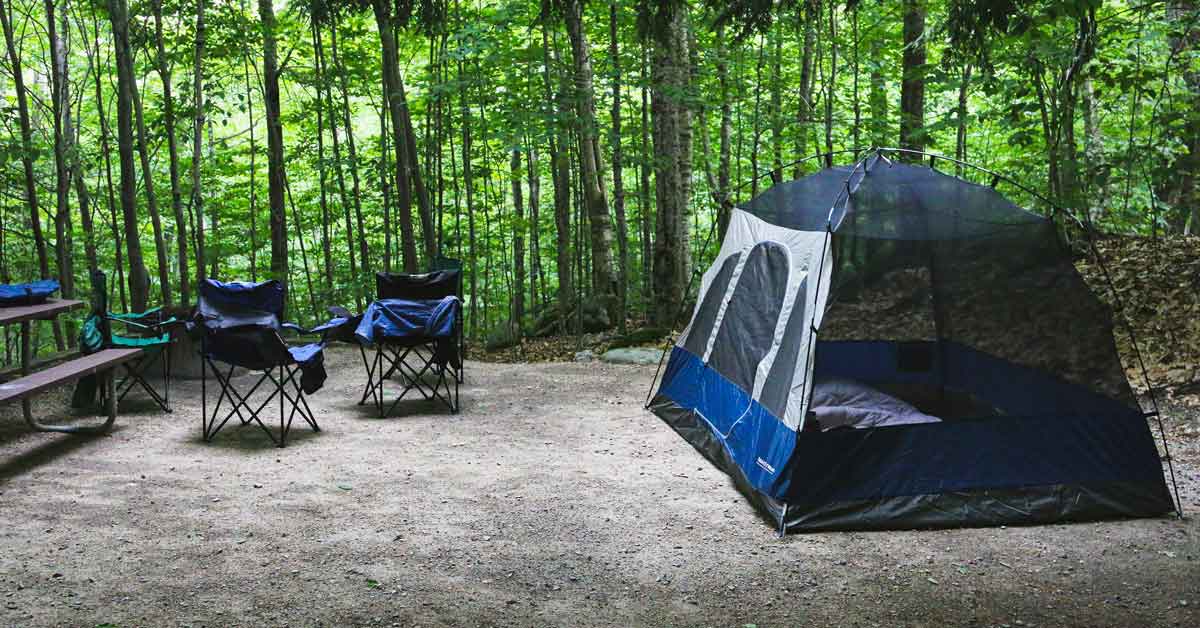
Larger items that can’t easily be put in your vehicle should be placed out of the view of passing cars and pedestrians then locked to a permanent object with a cable lock or chain and padlock. Trees work well. If you have concrete benches at your campsite, they work well too.
Securing larger items this way isn’t foolproof but it’s a great deterrent to opportunistic thieves.
Examples of gear you might secure at the campsite:
- Bicycles
- Generators
- Campers
- Trailers
- Kayaks
- Canoes
- Grills
- Cooler
Don’t Lock Your Tent
You should zip up your tent when you aren’t in it. It’s one of the easiest ways to keep insects out of your tent. Your tent, however, is not a place for safely locking up gear while you’re gone.
Putting a padlock on your tent is an advertisement to thieves that you’re not inside your tent and something of value is. Thieves will simply make a slit in your tent and steal the belongings inside. You’ll not only lose your stuff your tent will be destroyed as well.
When you leave your camp unattended, make sure your tent is zipped up and that you lock up valuables or take them with you.
Animals: Vandals and Food Thieves

Animals can vandalize your belongings when they attempt to steal your food. Keep your campsite clean to reduce the chance of attracting animals.
- Clean cooking areas after use.
- Keep eating areas clean.
- Wash cookware, dishes, and utensils immediately after use.
- Food containers should not be left open.
- Store food in airtight containers and bear-resistant food canisters.
- Use bear-proof cooler locks to keep bears, raccoons, and other animals out of your cooler.
- Do not leave trash lying around. Dispose of trash in designated receptacles ASAP.
Personal Safety
Reacting before thinking can put you and others at your camp in danger. Think before you confront a thief or try to scare off a wild animal. Your belongings aren’t worth the bodily harm that can occur.
Use common sense.
